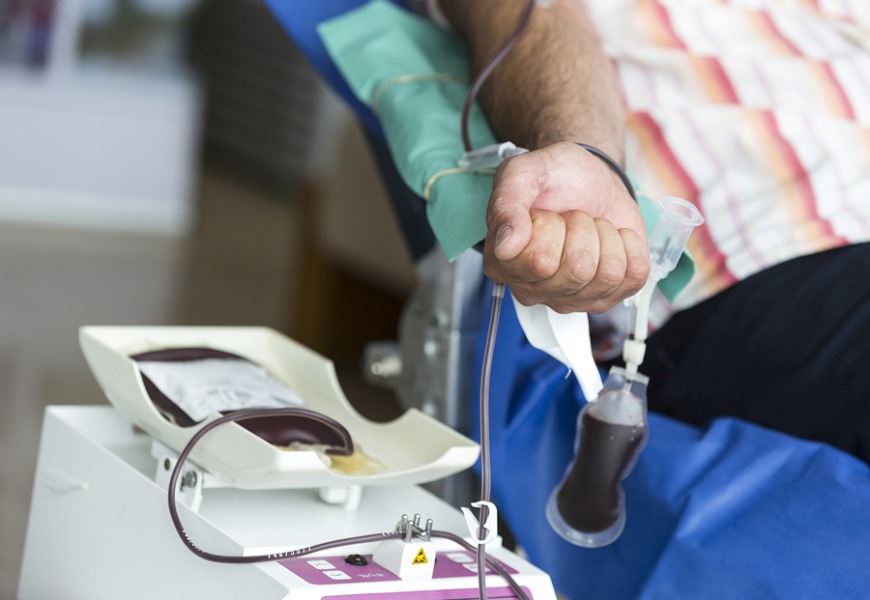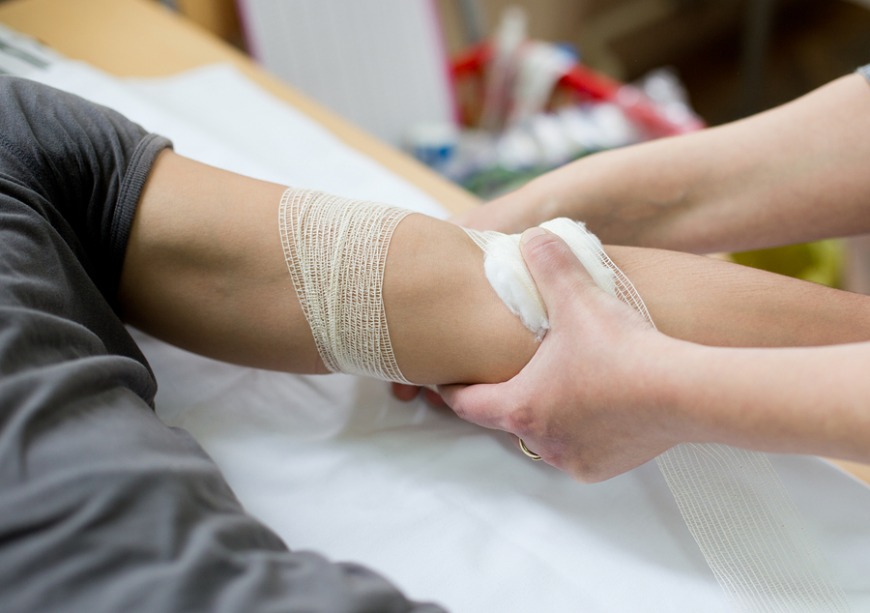It might not be the first thing on your mind, but it is incredibly important. Here's why...
7 March 2016
| Last updated on 31 December 2017
Blood donation is a practice that literally saves people’s lives, in their hour of need. We all know of the importance of blood donation to those who are in dire need of it.
Now we present you with the facts, because let’s face it, as much as we are all well aware of the outcome of blood donation, many of us have yet to join the movement that is saving thousands of lives across the globe.
Here is your guide to understanding the importance of blood donations.
Why should I donate my blood?
One unit of blood can save the lives of three separate people. THREE LIVES! Blood is especially needed during emergency surgeries, treatments, complicated deliveries or other trauma cases, in which an individual has lost a lot of blood. Other reasons for blood donations are to help people who are suffering from cancer or other terminal diseases. Such people are reliant on blood donations to survive.
Unfortunately, blood cannot be manufactured and stored, thus, the role of a volunteer who comes in to donate a unit of blood is imperative for the lives of others.
A unit of blood is equivalent to 500 ml (give or take). The blood donated is separated into different components, tested and regulated, then gets divided and distributed to the needed patients.
If that hasn’t convinced you to donate blood already, maybe this will. The act of donating blood is actually beneficial to you. Never mind the little tiny bruise that may appear from the pricking point, the blood that you have donated will be replenished back into your body within the next 24 hours.
You might also be interested in:
What are the advantages of donating blood?
Aside from the fact that you are saving lives, blood donors themselves are benefitting from their own donation.
- Replenishes your blood: When donating, the body compensates the lost blood by stimulating the bone marrow to reduce more red cells, white cells and platelets (all of which are components of blood) and ta-da, your wonderfully fascinating body has now revitalized you with some fresh blood.
- Improves your heart: By donating blood, you are essentially reducing the iron content of your body, and thus improving your cardiovascular system. Blood donors have been said to have lower risk of heart disease and stroke due to their continuously replenished blood.
- Improves fitness: Blood donations can vary from 450 ml to 500 ml (give or take), this donation can burn up to 650 calories in the donor’s body.
- Psychological effects: Donating blood is quite therapeutic for many people. The idea that one’s effort has helped deliver a positive impact, and saved people’s lives, gives donors a feeling of fulfillment and satisfaction.
The blood donation process:
First, we ask the most important question of all, are you eligible to donate?
In order to be eligible to donate you must be between the age bracket of 18 to 65 and in good physical condition and health. Additionally, you must weigh more than 50 kgs or 110 lb.
SEE ALSO: Why health screening matters
Now we begin.
- Registration and consent: Before you can even start to donation process, make sure to have your documents with you. You will need valid ID such as your driver’s license or Emirates ID, and will be asked to fill out a consent form.
- Screening: You will now be assessed by a registered nurse, who will ask you some extremely personal questions (don’t worry, they are in complete confidentiality), about your health history and test your blood. In addition to this, your body temperature, blood pressure, hemoglobin and pulse are checked as well.
- Donation time: If you are fit to donate, you will be asked to lie on a blood donation bed as your hand is placed on an attached arm rest. The nurses will use a brand new sterilized needle and insert it into your arm and begin drawing the blood. This process feels like a little pinch and is over in a matter of a few seconds. Now the blood starts to flow into the sterile blood bag.
- Relax: The blood donation itself takes anywhere between 8 -15 minutes, depending on the consistency and flow of your blood, so just sit back, relax, think about the happy thoughts and the cookie that you will get after you’re done.
- Recovery time: You’re finally finished! The nurse will now remove the needle and let you rest for another 10-15 minutes, to ensure that you are well enough to leave. After all, you did just donate a pint of blood and your body needs time to adjust to the decrease in fluid volume in your system.
- Saying goodbye: Refreshments and cookies will be offered in order to increase your blood sugar and revitalize your energy levels. At this time, you can get ready to leave and carry on with your day to day activities.
You are asked to drink plenty of fluids in the next 24 hours and refrain from smoking and lifting heavy objects for at least six hours.
After your donation, your blood is sent to a lab to be tested for several infectious diseases including; HIV 1 and 2, Hepitatis B and C, AIDS and more.
Let’s talk blood
AB blood type: If your blood type is classified as AB, you are considered a universal recipient, however, you can only donate to blood O types.
A blood type: If your blood is classified under A, then you are eligible to receive blood from other A and O blood types, however, you can only donate to A or AB types.
B blood type: Those who have B blood type are eligible to receive from other B or O types, while only able to donate to other B or AB types.
O blood type: O blood types are able to receive blood from other O types, however, they are eligible to donate to A, B, O or AB.
O negative blood type: Those with O negative blood types are known as universal donors. They are a rare type of blood but they are compatible with any other blood type and as such, are able to give their blood to any other type in any emergency.




.png?itok=HBSyMDok)









































































.png)






























.png?itok=0fOAXkOm)

























.png?itok=EH_x0Pha)
